
The stirrups. The fluorescent lighting. The probing. The questions. Let's face it — going to the gynecologist is rarely an enjoyable experience (no matter how much you love your doctor). For those of us who are a little shy, it can be difficult to ask someone our most intimate questions.
However, it's critical to find doctors you trust and fight your inclination to be embarrassed. After all, experienced gynecologists have heard (and seen) everything. The best way for them to help you is to have an honest dialogue so they can order the appropriate tests and make an accurate diagnosis.
We asked the experts what the most common questions are that patients are curious about but don't want to ask. Here's what they had to say.
Why does my vagina smell?

This is the most commonly asked question at a gynecologist's office, and guess what? Most of the time the "smell" is perfectly normal.
"People with vaginas have been conditioned to think that any smell is abnormal or 'gross' because of the shame many feel about their bodies," explains Dr. Kelly Culwell, aka “Dr. Lady Doctor,” a board-certified and fellowship-trained OB-GYN who has worked with the World Health Organization.
"So, it might be that your vagina is completely normal! But, if you have noticed a change in odor, especially if it is accompanied by a change in your vaginal discharge (more discharge or a different color) or any other symptoms like pain or fever, you should definitely go to your health care provider for an exam and additional testing as this could be a sign of infection," she says.
"Vaginal odor also changes during different times of the menstrual cycle so it is important for you to be aware of these normal changes in your body and seek help any time something doesn't seem normal."
Is my discharge normal?

Vaginal discharge serves an important function in a woman's reproductive system by carrying away dead cells and bacteria. This, in turn, keeps the vagina clean and helps prevent infection.
According to WebMD, "Most of the time, vaginal discharge is perfectly normal. The amount can vary, as can odor and color (which can range from clear to a milky white-ish), depending on the time in your menstrual cycle."
However, if you've noticed a significant change in color, smell, or consistency and have been experiencing vaginal itching or burning, you could be dealing with an infection and should consult a doctor.
Why is sex painful for me?

Consentual sex between individuals should be an enjoyable experience for everyone involved. But many women endure painful sex in silence, embarrassed to ask their doctor why this may be occurring and what they can do about it.
"There are a lot of reasons that sex might be painful [for women]," Culwell tells CafeMom. "Lack of foreplay or lubrication is a common reason but there are physical reasons or conditions that can also cause painful sex. You should definitely speak with your health care provider who will ask you very detailed questions about the pain, when it happens, how long it lasts, etc. Additional tests may be needed to help find the cause."
I've noticed bumps on my vagina. Are they normal?

Bumps on your vagina can be normal in some instances, or they could be a sign of something more serious. A bump can include anything from a cyst to an ingrown hair to a skin tag to cancer. If you have recently developed a vaginal bump, see your doctor for a diagnosis.
I've lost my sex drive. How can I get it back?

Many women (tired moms especially!) have at some point found themselves with a lower than usual sex drive. Dr. Sallie Sarrel, a New York and Miami-based pelvic physical therapist and cofounder of The Endometriosis Summit, tells CafeMom that the answer to this question is a bit complicated and different for every woman.
"Sex drive is a complicated thing. Medication, anxiety, life-changing events like a death in the family, depression, sleep, financial stress, and so much more can affect your sex drive. Most new moms aren't sleeping, then they are trying to adjust to changes in their bodies and the baby being in the next room, so it's no wonder the sex drive changes.
"In addition, chronic pain changes the sex drive, and bloating changes the sex drive (no one feels sexy when they are puffed up like a blueberry). Perimenopause and menopause cause sex drive issues as well."
If you've noticed a dip in your sex drive, take a step back and look objectively at your life. Have you changed medications? Gone through a traumatic event? Experienced an increase in stress? Use a journal to track your sleep, heart rate, diet, exercise, vitamins, and supplements. Then bring this to your doctor.
And if your doctor minimizes how important this issue is to you, Sallie's advice is to "find a new doctor."
Can I still have sex while I'm pregnant?

Simply put? Yes. But if you're concerned, speak directly to your doctor.
My periods are so much worse after I've given birth. Why?

You conceived a baby, you carried it for nine months, and you went through labor and delivery. Now your period has returned and it's worse than ever?! It's not fair, but it is common.
"Some women experience heavier, longer or more painful periods after having a baby," OB/GYN Dr. Diane Young tells Cleveland Clinic. "These changes may relate to a larger uterine cavity causing more endometrium (mucous lining the uterus) to shed."
Other complications such as structural defects (polyps or fibroids), adenomyosis (a thickening of the uterus), and overactive or underactive thyroid disorder, can negatively impact periods.
Why am I suddenly experiencing really bad PMS symptoms?

Just as periods can change after birth, so can premenstrual syndrome, or PMS. PMS symptoms are wide-ranging and different for everyone. Common symptoms include food cravings, social withdrawal, tension, depressed mood, crying spells, change in libido, headache, fatigue, abdominal bloating, breast tenderness, acne fare-ups, and more.
Although it's estimated that 3 out of 4 menstruating women experience some form of PMS, according to Mayo Clinic, only a small amount of women experience premenstrual dysphoric disorder, or PMDD, which is a debilitating form of PMS.
Even though diet and exercise can help ease symptoms of PMS or PMDD, you may want to speak to a doctor to rule out underlying conditions.
My partner and I have been trying to get pregnant naturally and nothing is working. Where do we go from here?

"The first step is to make sure you are tracking your menstrual cycle and timing intercourse around the time you should be ovulating," Culwell tells CafeMom. "There are a lot of online and app-based trackers that can help you to determine if you are having regular cycles and when you should be ovulating."
Culwell notes that even if you are tracking your cycles, it can take several months or "up to a year" for couples to become pregnant.
"If you have been trying with menstrual tracking and timed intercourse for six months, go to your health care provider to see if additional tests for either partner are necessary. If you don't have regular menstrual cycles, you should go in sooner as this can be a sign of underlying problems that can make getting pregnant difficult without medical help."
Does my vagina look normal?

"Almost certainly YES!" says Culwell. "I think when people ask this question they actually mean the vulva — which is the part of the genitalia you can see leading to the opening of the vagina (which is the inside).
"Unfortunately, sometimes the only frame of reference people have for 'normal' external female anatomy is pornography, which is definitely not representative of all of the normal variation that exists in vulvas.
"For more realistic images, I would highly recommend checking out online resources like The Labia Library."
Remember, vulvas come in all shapes and sizes — and they're all beautiful and perfectly "normal."
Why am I having repeated yeast infections and UTIs?

If you're having recurring yeast infections or UTIs (urinary tract infections), you don't have to suffer in silence.
"While yeast infections and UTIs are very common in women, they should not be considered 'normal,' Culwell tells us. "Some issues that can cause recurrent yeast infectons or UTIs include new sex partners, use of certain birth control methods (like spermicides for UTIs or hormonal methods for yeast infections) or other health problems like diabetes.
"Some women also just have a genetic predisposition for these infections. Definitely talk to your health care provider about what risk factors you may have and ways that you can prevent infections in the future."
What is the right birth control method for me?
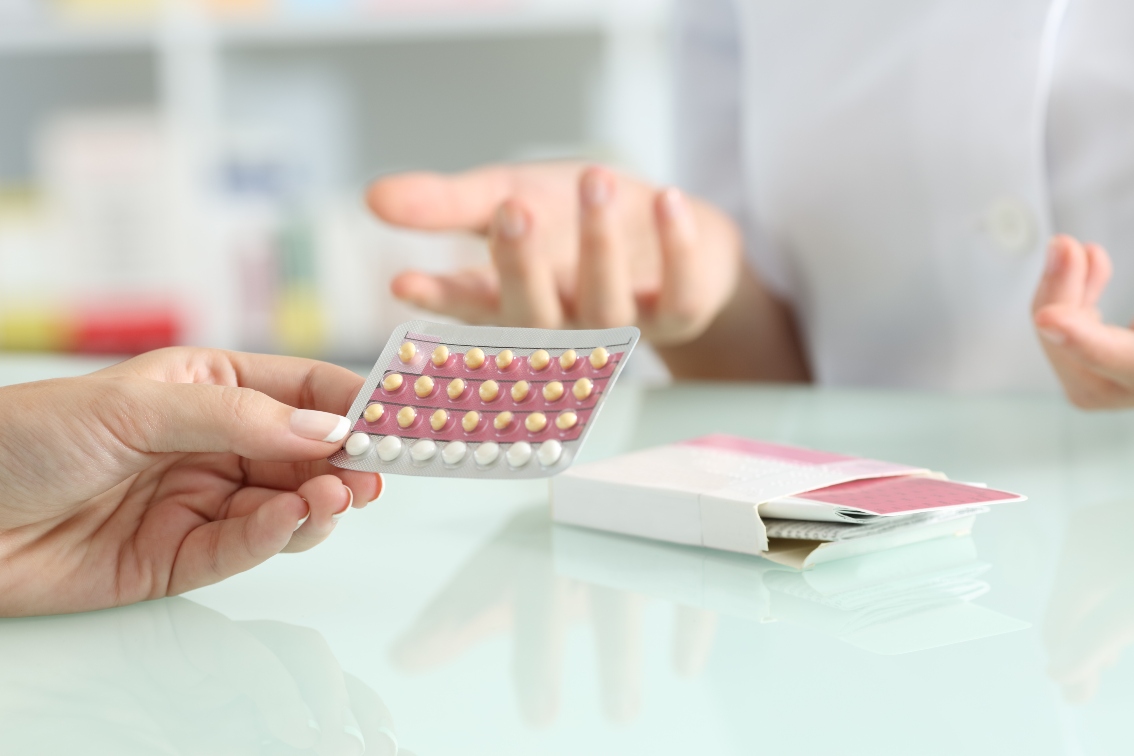
Even if you're not embarrassed to ask your doctor about birth control initially, many women don't speak up when they're unhappy with their current method. If you are experiencing unpleasant side effects or it's simply not helping issues other than preventing pregnancy, talk to your doctor about trying something new.
There's no one solution for all women. What's most important, according to Dr. Maria Sophocles, OB/GYN and medical director of Women’s Healthcare of Princeton, NJ, is to "choose the one that you can be compliant with and which you tolerate best. Listen to your body."
Do I need a mammogram?
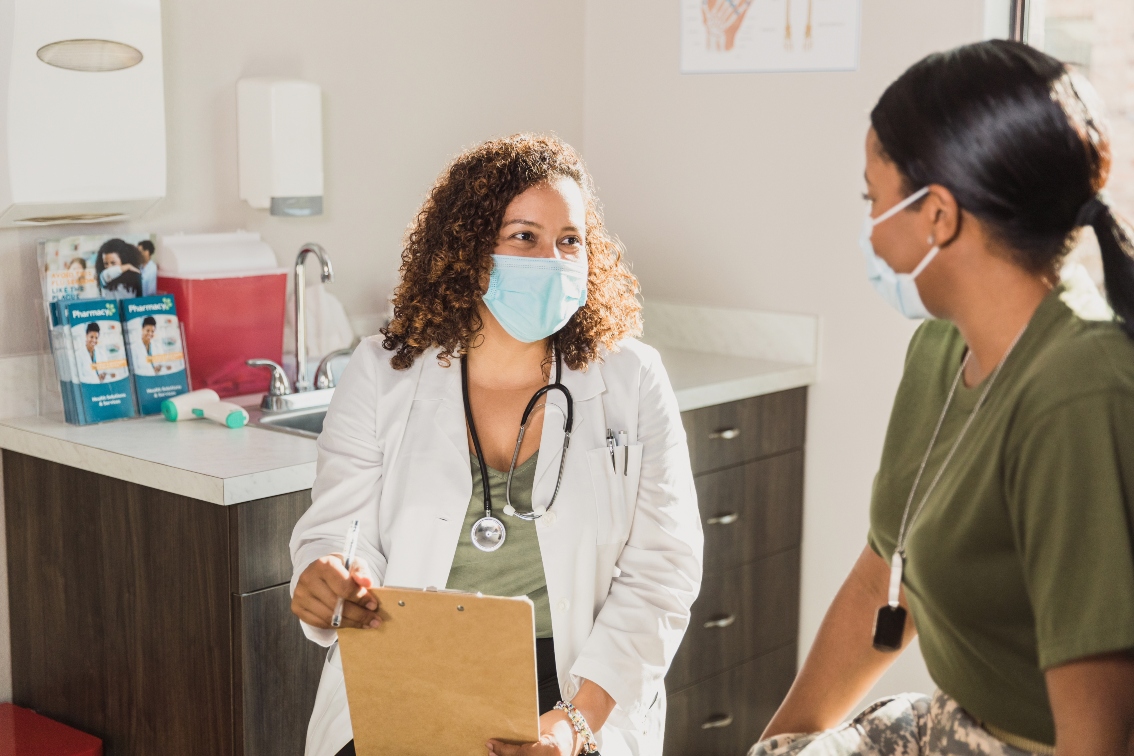
Whether you should schedule a mammogram depends on your age and risk. The American Cancer Society recommends the following:
- Women ages 40 to 44 should have the choice to start annual breast cancer screening with mammograms (X-rays of the breast) if they want to do so.
- Women ages 45 to 54 should get mammograms annually.
- Women 55 and older should switch to mammograms every two years or can continue yearly screening.
If you are at an increased risk of breast cancer because of your family history or other genetic factors, speak with your health care provider about whether you should have a mammogram.
What kind of lubrication should I be using during sex?

"Picking a lube may be one of the most fun parts of sex for you and your partner," Sallie tells CafeMom. "These days there are many options.
"The best lube to use is the one that feels best to you. CBD lubes like Go Love may help with inhibition and relax the tension for both you and your partner. Water-based lubes might make shower sex more comfortable. In general, avoiding lubes with a high sugar content and flavoring (while maybe fun) is a good rule of thumb.
"If you are trying to get pregnant, you want to use a sperm-friendly lubricant like PreSeed or Baby Dance."
What's the best way to clean my vagina?
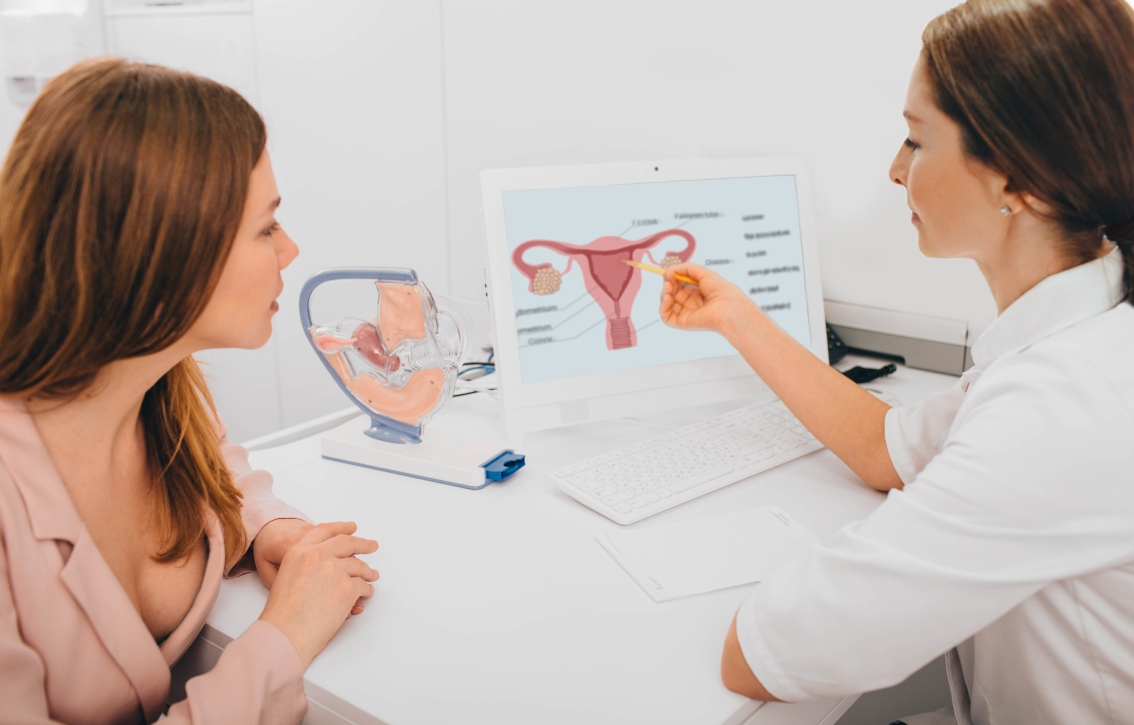
"The vagina is actually self-cleaning," Sophocles says. "It does not need anything per se, however many women like to use vaginal products like a RepHresh to keep their lady parts pH-balanced and to avoid any potential unpleasant odors."
How do I do a breast exam on myself?

It is important to perform at-home breast exams to self-screen for any lumps or abnormalities. But how do we do it exactly? Sophocles explains.
"The best place to do a breast exam is in the shower with the pads of your fingertips. Conduct the exam by creating a concentric circular motion, feeling for hard nodules or masses that were not previously there."
Why do I keep peeing after I sneeze or laugh?
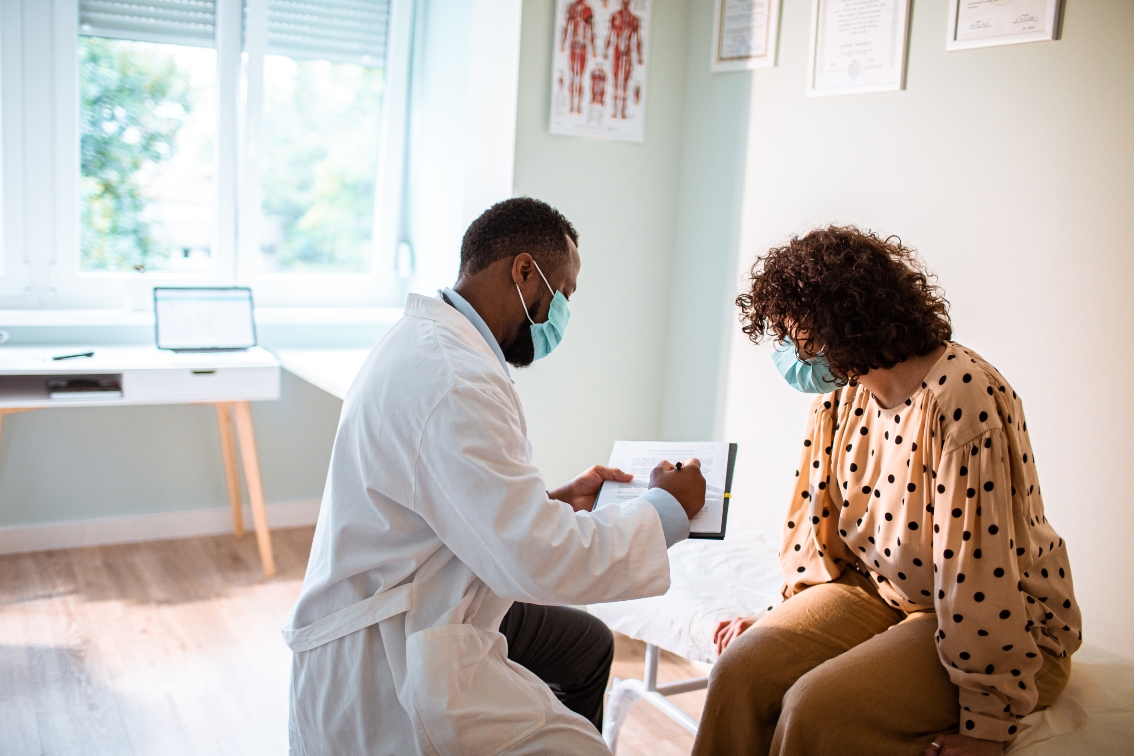
Letting out a little pee while laughing, sneezing, running, etc., is so common most moms tend to just think of it as a rite of passage that comes with age and motherhood. But Sophocles breaks down why this may happen to you (and what you can do about it).
"This may actually be a sign that your urethra is hyper mobile," the doctor says. "This can happen after vaginal childbirth, with aging, or both, as the supporting tissues around the urethra become weak. Your gynecologist can tell you if you need to work on pelvic floor exercises. You actually may need a small surgical procedure to stabilize the urethra called a mid-urethral sling."
Why am I experiencing pain in my vagina when I'm not doing anything?

Pain is your body's way of telling you something is wrong. If you're experiencing random pain in your pelvic region, call your doctor for an exam.
According to Sophocles, pain "could be a sign of infection – vaginal or urinary – or of hypersensitive nerve endings called vulvodynia."
How often is it normal to masturbate?

"Self pleasure is part of self care, something most people forget," says Sallie. "Masturbation is completely normal and the amount you masturbate varies from person to person. What is right for one, may not be the right amount for someone else.
"However, if you are masturbating to relieve pain in the pelvis or anywhere else or are driven to masturbate to stop painful tension, this could be a disorder called PGAD, persistent genital arousal disorder."
If not, enjoy yourself (as frequently as you please!) and leave the guilt behind.
Can I visit the gynecologist while I have my period?
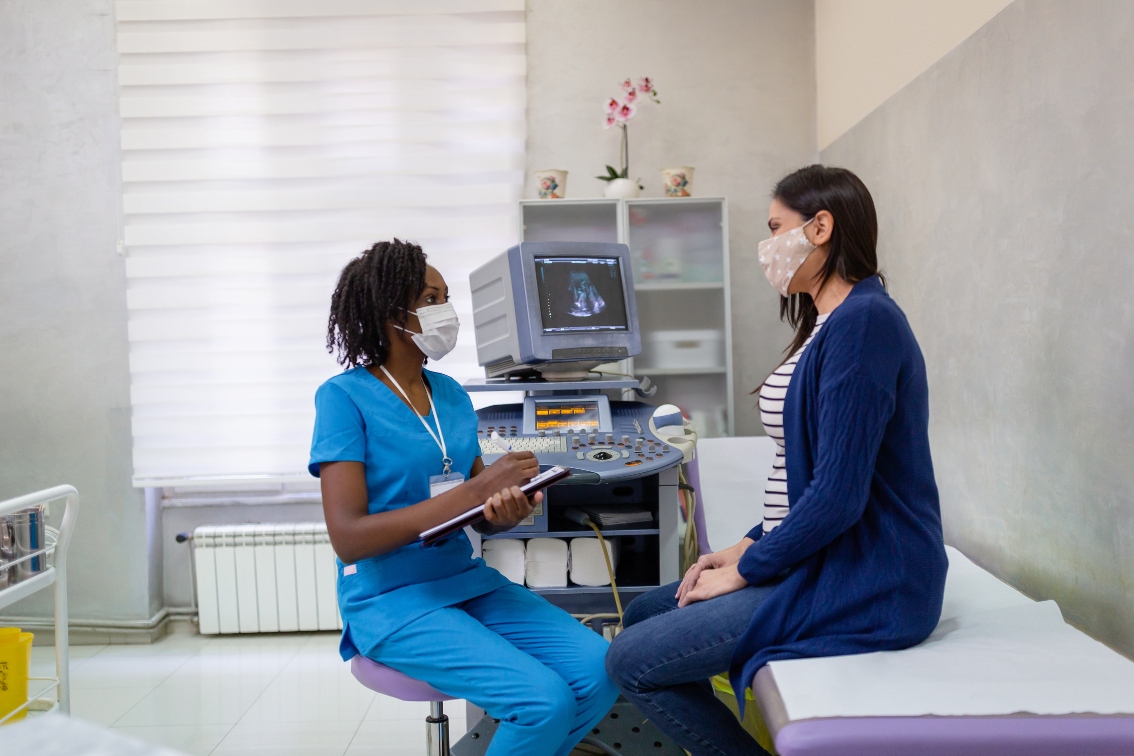
Absolutely. Although you may not be at your most comfortable, your doctor has seen it all and a little (or a lot) of blood will not faze them one bit. So if you made an appointment months ago and it just so happens to fall during your period, don't sweat it.




